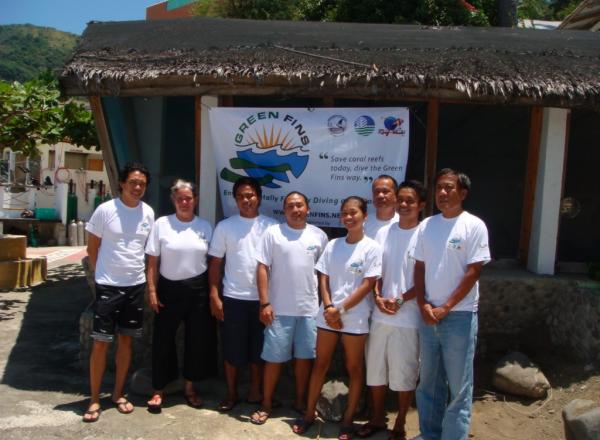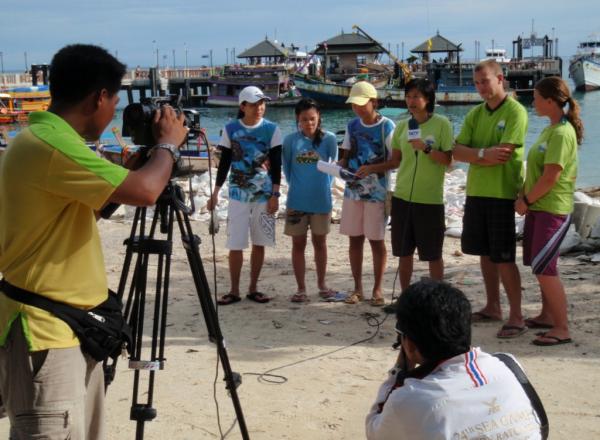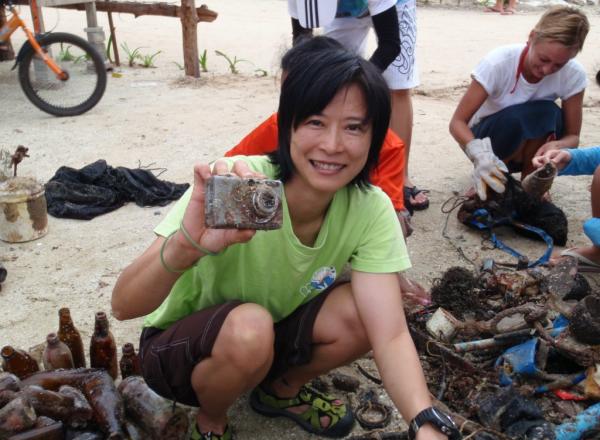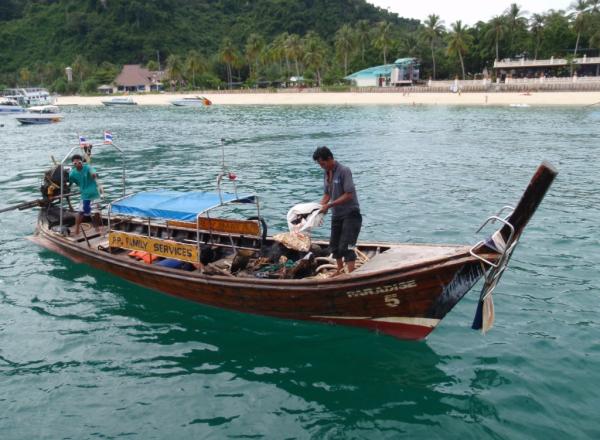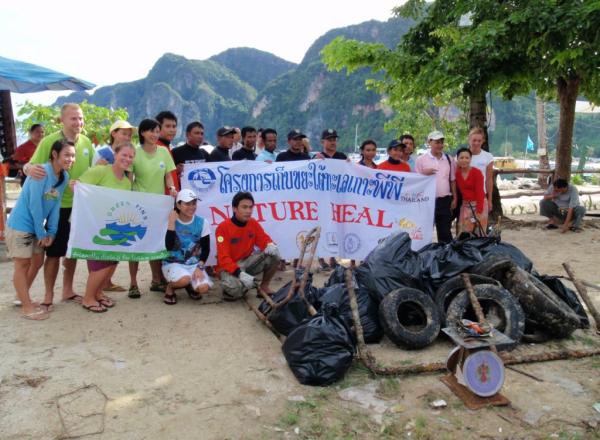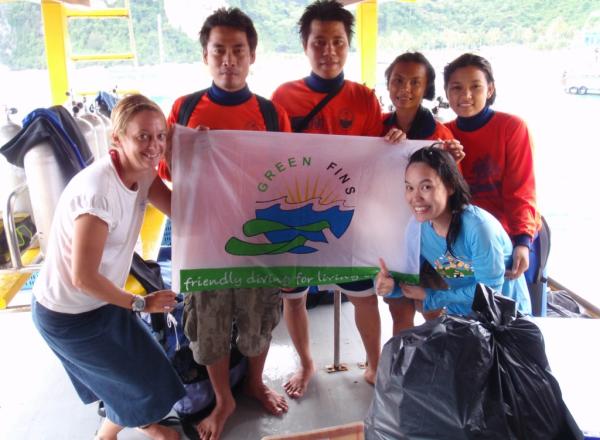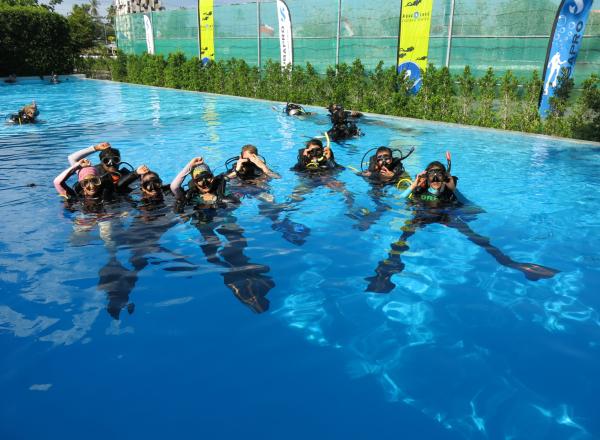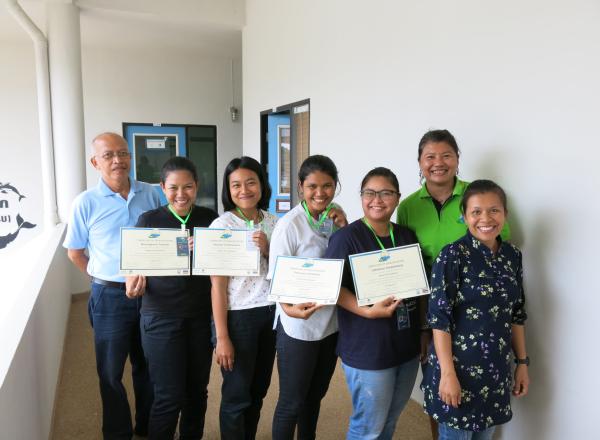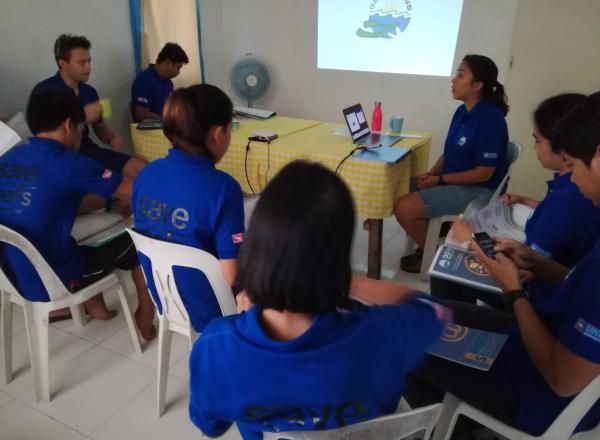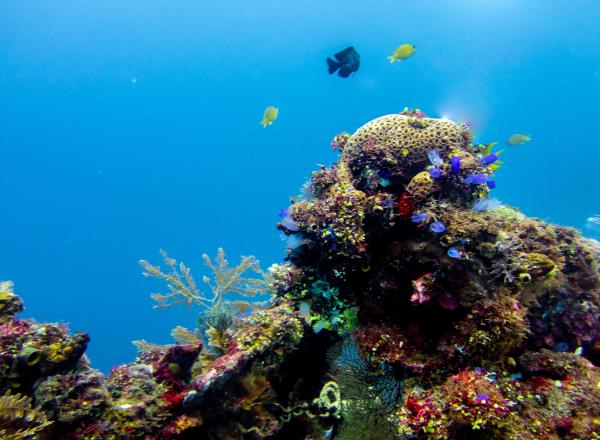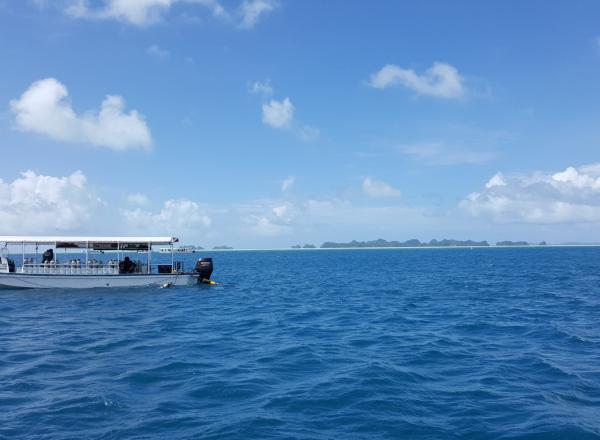Innovations
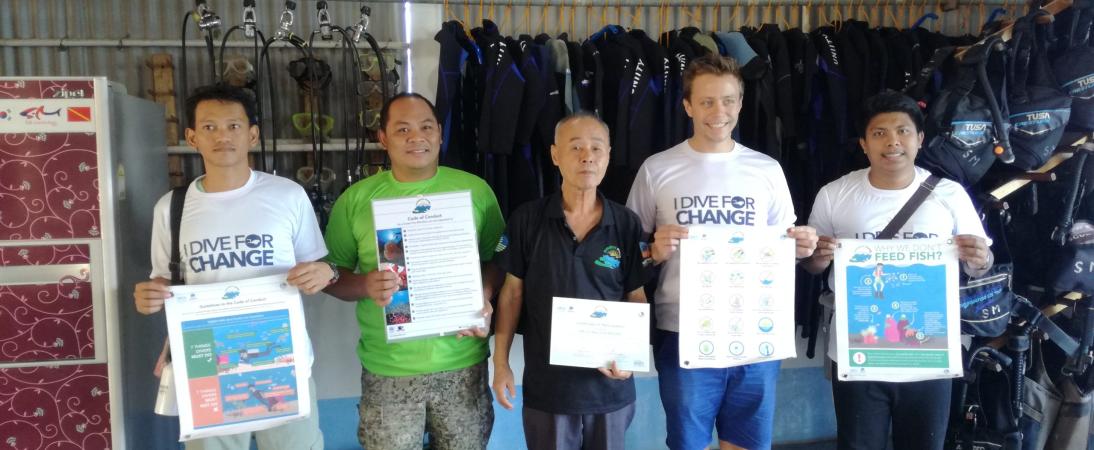
Green Fins
Reducing the local direct and indirect pressures from diving on coral reefs
Green Fins is a conservation approach that encourages and empowers members of the diving industry to reduce negative environmental impacts in line with the Green Fins Code of Conduct and protect the coral reefs upon which their businesses depend. Through a robust annual training, assessment and consultation process, Green Fins’ teams (Governments) help dive and snorkel companies find practical, low-cost alternatives to harmful practices – such as anchoring, fish feeding and chemical pollution – as well as providing strategic support and resources. By reducing the local direct and indirect pressures tourism puts on coral reefs, it helps make corals healthier and more resilient to other stressors such as the effects of climate change.
The problem
Coral reefs are severely threatened by climate change impacts. Due to warming sea surface temperatures, ocean acidification and increased frequency and intensity of storms, the outlook by 2030 is a bleak with up to 90% of coral reefs nearing extinction. Reducing local-scale impacts, such as those from intensive marine tourism, allows reef ecosystems to be more resilient to survive the effects of climate change.
The solution
The Green Fins initiative aims to protect and conserve coral reefs through establishing and implementing environmentally friendly guidelines that promote a sustainable diving and snorkeling industry. Currently active across 11 countries, Green Fins leads to a measurable reduction in negative environmental impacts associated with diving and snorkeling by identifying high-risk activities and providing pragmatic, low cost and locally available solutions. Nearly 600 individual marine tourism companies have joined the network.
How it Works
Coordinated internationally by The Reef-World Foundation in partnership with the UN Environment Programme, the Green Fins network connects nearly 600 dive centers across 11 countries working to make the dive and snorkel industry more sustainable and environmentally friendly. This network targets 56 diving hotspots across Southeast Asia, the Indian Ocean, the Pacific and the Caribbean; the large numbers of visitors arriving at these destinations each year puts significant pressure on marine systems to sustain high diving traffic.
The Green Fins approach uses three primary tactics to achieve better sustainability outcomes for these destinations: 1) Facilitate the only internationally recognized environmental standards for the diving and snorkeling industry, based on a 15-point code of conduct, and conduct robust assessments to measure compliance; 2) Support in the development or strengthening of relevant regulatory frameworks; and 3) Strategic outreach to, and capacity building among, diving and snorkeling centers as well as governmental agencies.
Based on its 15-point Code of Conduct, Green Fins’ environmental guidelines help marine tourism operators minimize their environmental impact both above and below the water. Members and non-members can access these resources free of charge. Active members undergo an annual assessment to observe the dive or snorkel center’s practices with recommended improvements for the following year based on each company’s area of highest negative impact on the reef. This could include simple alternatives to common destructive practices like anchoring on reefs or the provision of single-use plastics in dive centers. Membership is free, and continued participation is secured by the operator making ongoing improvements and continuing to reduce its environmental risks (i.e. improving their assessment results).
When Green Fins is implemented in a new country, Reef-World works to train national and local government bodies, as well as local NGOs, as implementing partners. This capacity building helps to bridge the gap between private sector dive industries and government agencies, and ensures the long-term sustainability of the Green Fins model. Assessment data from Green Fins’ programs is also used to inform the development of government regulations, including national legislation integrating the Green Fins approach into country-wide environmental initiatives.
Goals
Green Fins aims to make sustainable diving the social norm globally. Green Fins works with the global marine tourism industry to shape diving behavior from top to bottom: working with government agencies, dive centers, and passionate dive guides in order to promote lasting industry change. Critical to this mission is educating and empowering dive centers to use alternatives to unsustainable practices.
Challenges
The major challenge faced is the global demand for Green Fins membership, which currently exceeds the capacity of Reef-World and the Green Fins teams. Reef-World is looking at novel ways to bring the Green Fins tools to scale, train up new countries and continue capacity building with current teams within the network.
Impacts to Date
- Greens Fins’ initiatives enacted in 11 countries globally
- 19 national and local government agency or NGO implementing partners engaged
- 43 active government/NGO staff trained as Assessors or Coordinators to run the network at a national level
- 56 diving hotspots across South East Asia, the Indian Ocean, the Pacific and the Caribbean
- 550+ Dive center members since 2004
- Trained 192 Assessors & over 4,500 dive staff
What's Next
Reef-World will continue to expand the number of Green Fins countries whilst bringing the Green Fins suite of tools and guidance online to meet global demand. Keep an eye out for future Green Fins online courses that will build on the current Dive Guide e-Course to meaningful and interesting education to improve dive and snorkel industry environmental standards.
